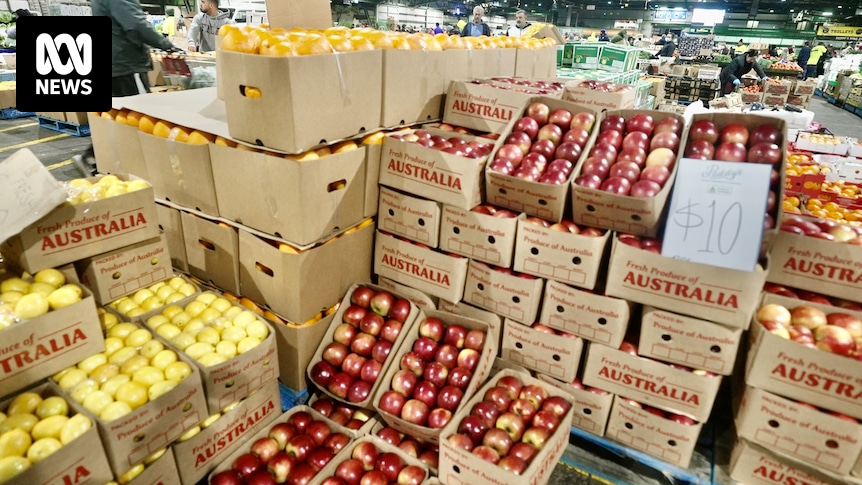In short: Families are making significant savings on their grocery bills by forming small shopping co-ops.
Cooperative business structures account for less than 1 per cent of the supermarket sector in Australia.
What’s next? The peak body for co-ops is calling for more government support for the business model.
Coops are so powerful. I tried to get involved in our local ones however they’re dying for (imo) really frustrating reasons.
Instead of leveraging their core strength, namely allowing poor people to collectively negotiate for fair prices while cutting out middle men, they are focused on everything to the max ethical hippy shit (amusingly the same busybodies pushing this also voted to make it not vegan anymore… wtf do you believe in?) so the result is they’ve become super bougie.
Instead of being a place where you can buy beans and rice etc at below supermarket prices while still giving the farmers a better deal it’s all organic biodynamic gluten free almonds and luxury teas. Don’t get me wrong, I love my fancy tea, but first and foremost it needs to be a place where you get your bulk calories/macros cheaper than the supermarket or at least comparable (obvs supermarkets loss lead on some stuff like bread you’ll never match).
Also fuck me for this opinion but putting food on the table of some working class people and taking power back from supermarkets and giant farming conglomerates does more good than serving organic teas to the 50 wealthy people in the area that can afford them. Survive first, improve from a position of strength.
Without knowing about how things are set up in your local co-op, maybe you could investigate setting up a two-stream system of ‘budget’ and ‘organic’. Or you could just set up an entirely separate co-op.
Maybe, space and rental costs for the shop are pretty limited and pretty high. I sort of want to start my own but I’m a human garbage fire between the nerve pain and the depression making the fucking hard yards of getting started extra hard.
Idk what to really do. With the death of community hubs it’s really difficult to get enough of a group together it’s not a heroic effort generating interest and that sort of organising is not anything I’m good at or even really know how to approach :(
Yeah, fair enough. I don’t have any first-hand experience, but advice I’ve heard is that if you can get just one other committed person on board, you’re halfway there.
If you’ve got a local Food Not Bombs group, that’s a good place to find people that are into cooperation. There’s other community groups around that might have people who are interested or that are willing to provide infrastructure of some kind - men’s sheds come to mind. Otherwise, it’s worth a try posting on local Facebook groups.
There’s probably a guide or blog written around getting something like this set up. I should have a dig around.
honestly, that king of the hill ep nailed it
I feel like I’m missing out…
better Raise the Steaks
I need to start ditching more companies. Reminds me I also need to look into leaving commbank for a credit union.
Do it. I don’t understand why more people don’t join credit unions / mutual banking. There’s literally no downsides, they have all the same services, protections, minus the fees. It’s a no brainer.
Knowledge/Recognition I’d say.
Most people could tell you the names of the Big 4, doubt they know any CUs. Let alone if they even know what they are.
Fees have almost entirely gone away for most banks these days (at least the ones I’ve used), so I get the inertia. It certainly didn’t make sense when people would stay on the likes of CBA back when they had monthly fees and a savings rate much lower than third party banks and some credit unions.
I’ve been looking into various farmer direct/co-op/budget friendly options lately, but as a small household, I’m fucked. It’s the same reason Costco is useless to me. I’d be buying way more than I needed and it would spoil before we could get through it.
I hate throwing out food and won’t do it when so many people in the world go hungry.
This is the best summary I could come up with:
Vendor Frankie Schipirra, whose family has been in the fruit and vegetable business for decades, said he’s seen an influx of small informal co-ops at Paddy’s Markets due to cost-of-living pressures over the last six to 12 months.
While Mr Blythe’s co-operative is informal, some have set up as profit-sharing enterprises or non-profit organisations offering membership to the public.
Ms Morrison said these cooperative structures allowed people to pool their purchasing power in the face of cost-of-living pressures.
Ms Morrison adds that the purpose of a co-op is to deliver benefits back to members, rather than profit maximisation and returns to investors.
In Australia, cooperatives exist across a broad range of industries including banking, insurance, agriculture, motoring and retail.
Professor Foster says although co-ops can exert some price pressure, they won’t be able to seriously challenge Coles or Woolworths given the market share, convenience and range of products the major supermarkets have.
The original article contains 1,040 words, the summary contains 152 words. Saved 85%. I’m a bot and I’m open source!
The coops in my American city are usually the more expensive option than the chain grocery stores. They pay their staff fairly (because the staff own part of the business) which is great, but saving money for the consumer they do not.
I just don’t think a coop can be cheaper than a larger corporate entity that can purchase at huge bulk discounts for their many stores. Healthier? Sure. More ethical? Sure. Similar costs or cheaper? Nah.






